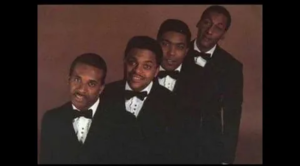
The Four Tops and Their Irresistible Anthem: “I Can’t Help Myself”
The annals of popular music are replete with songs that transcend mere entertainment to become cultural touchstones. One such masterpiece is “I Can’t Help Myself” by The Four Tops. Released in 1965, this infectious blend of soul and pop captured the hearts of millions and cemented the group’s status as Motown royalty.
Background
To understand the enduring appeal of “I Can’t Help Myself,” one must first appreciate the context of its creation. The 1960s was a decade of profound social and cultural change, and Motown Records emerged as a vital force in shaping the sound of the era. The label’s signature blend of rhythm and blues, gospel, and pop created a music that resonated with audiences across racial and socioeconomic lines.
The Four Tops were one of Motown’s premier vocal groups, distinguished by their rich harmonies and the soulful baritone of lead singer Levi Stubbs. Their collaboration with the songwriting and production team of Holland-Dozier-Holland proved to be a match made in musical heaven. Together, they crafted a string of hits that defined the sound of the mid-1960s.
“I Can’t Help Myself” is undoubtedly one of the crown jewels of this partnership. The song’s irresistible melody, coupled with Stubbs’ impassioned vocals, creates a sense of raw emotional vulnerability that is both captivating and relatable. The lyrics, filled with longing and desperation, capture the universal experience of falling deeply in love. Yet, the song is far from a mere love ballad. It is a celebration of the human condition, acknowledging the power of love to both elevate and enslave.
The song’s structure is classic Motown, with a verse-chorus-bridge format that is both familiar and effective. The arrangement is equally masterful, with a driving beat, lush strings, and subtle horn accents that create a sonic backdrop that is both propulsive and sophisticated. The song’s iconic opening line, “Sugar pie, honey bunch,” has become synonymous with the track and is a testament to its enduring popularity.
Beyond its commercial success, “I Can’t Help Myself” has had a profound impact on popular music. It has been covered by countless artists, sampled by countless producers, and referenced in countless films and television shows. The song’s enduring appeal is a testament to its timeless quality and the power of its message.
To truly appreciate the brilliance of “I Can’t Help Myself,” it is essential to listen to the song with fresh ears. Pay attention to the intricate harmonies, the subtle nuances in Stubbs’ vocal delivery, and the overall sonic texture of the recording. It is a song that rewards repeated listening, revealing new layers of complexity and beauty with each listen.
In conclusion, “I Can’t Help Myself” is more than just a song; it is a cultural artifact that encapsulates the spirit of an era. It is a testament to the power of music to connect with people on a deep emotional level. And it is a reminder of the enduring legacy of The Four Tops and the Motown sound.